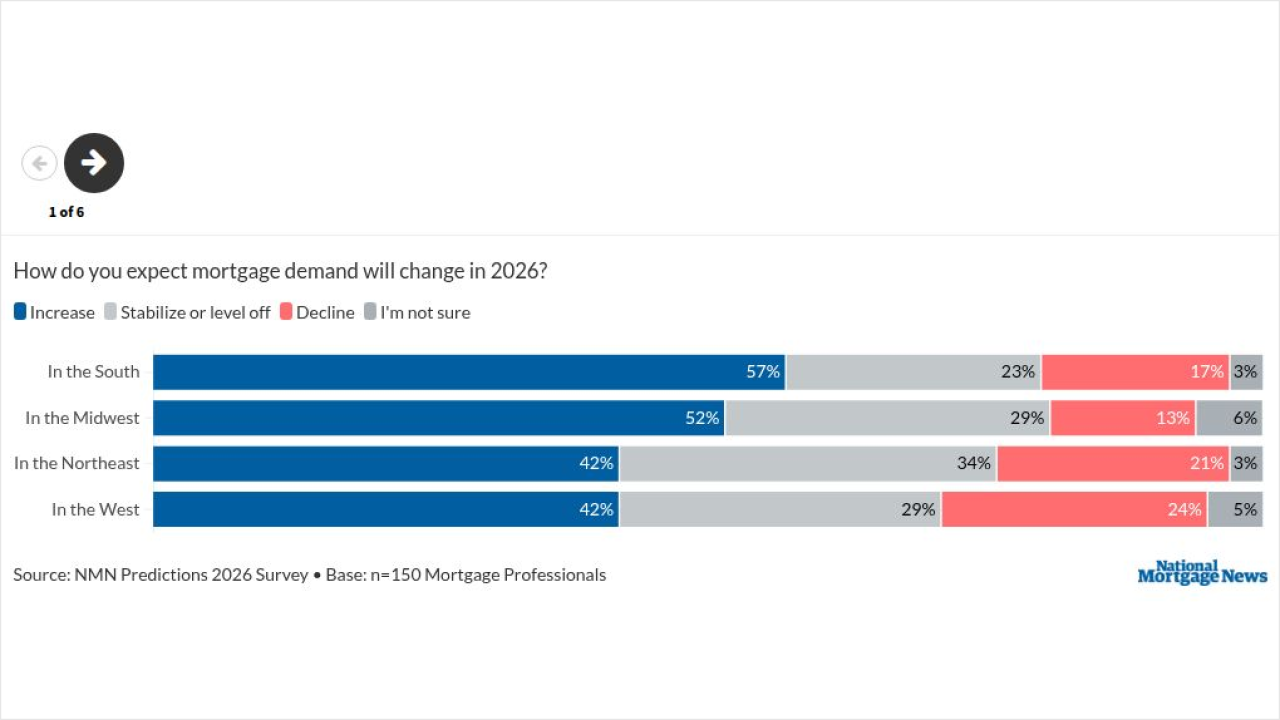Although merging with a special-purpose acquisition company became the hot way to go public recently, doing this kind of transaction was not on the minds of the management team at Finance of America as they looked to go public at the start of 2020.
"We were set to go the IPO route," said CEO Patricia Cook. "The reason we pivoted wasn't about the SPAC. It's all about our particular sponsors. Between Edmond Safra, Chinh Chu and Lance West, we have some of the best investors in the business."
Safra is the co-CEO of Replay Acquisition, the SPAC with which
"It's not the SPAC structure particularly, but it was all about those three partners," Cook said.
The pandemic did not play into Finance of America's timeline for going public, but it did allow the company to show potential investors the strength of its business model. The company has four distinct units: forward mortgage, reverse mortgage, commercial real estate and mortgage services.
"We're unique in our space," Cook said. "We're in multiple products and we were constructed that way to deliver cycle resistant returns to shareholders. And when you look at what happened in March, we had the opportunity to demonstrate that."

Given a lack of liquidity in the market and wider risk premiums across the board, Finance of America's leadership realized that "clearly [forward] mortgages are going to be a winner, we need to make sure we've got all of our resources pivoted in that direction," Cook said.
Meanwhile, commercial real estate at large
The company then pivoted to forward mortgage, even moving 75 people between the two units to support that activity, Cook said.
"So the optionality to go do forward mortgages or to pick up reverse or to originate commercial, is part of the strength of the platform," said Cook. "And then complement it with our fee-for-service business and our portfolio management activity, we end up generating a higher revenue per unit than our peers that are members of the MBA for example. It's a simple concept, diversification, but it's not easy to execute."
Given all the talk about nonbank mortgage lenders that have announced or are considering
"What's interesting for investors now, in some ways helpful, is now there are comps, and we're not just a mortgage company," she said. "But if you have other mortgage companies that you want to compare us to, we can help by articulating what we are and how we're different."
That includes its origination channels, she said, which includes branch retail as well as through third parties.
In January 2019, the company's production was 75% purchase; in the second quarter of this year it was 75% refi. "So we built our distribution capabilities to be agnostic about its purchase or refi," she said.
Going public also provides Finance of America with capital to grow the company both organically and through acquisitions — even though when the company was a part of Blackstone that had not been a problem. Blackstone, along with company management, will control 70% of the equity of the post-merger entity.
"We're think we're poised for growth both organically — we can grow what we already do either through more distribution or by creating new products — and definitely through acquisitions. The company was formed by doing 15 acquisitions," Cook said.
And Finance of America has learned from the past, as those first five deals were "not nearly as elegantly done as the last five," she said, adding that a possible acquisition could be in a business line that company is not doing right now. Having stock gives the company a currency to fund that, Cook said.



